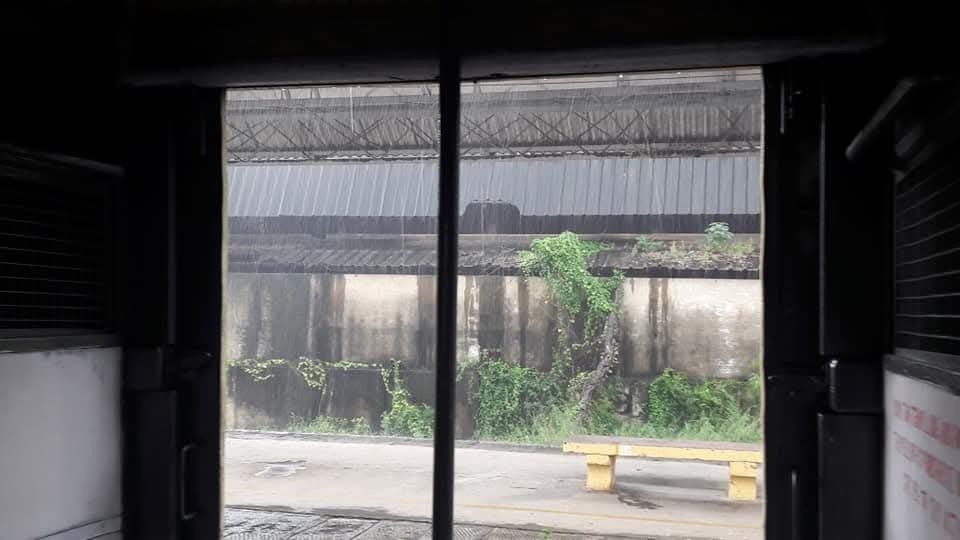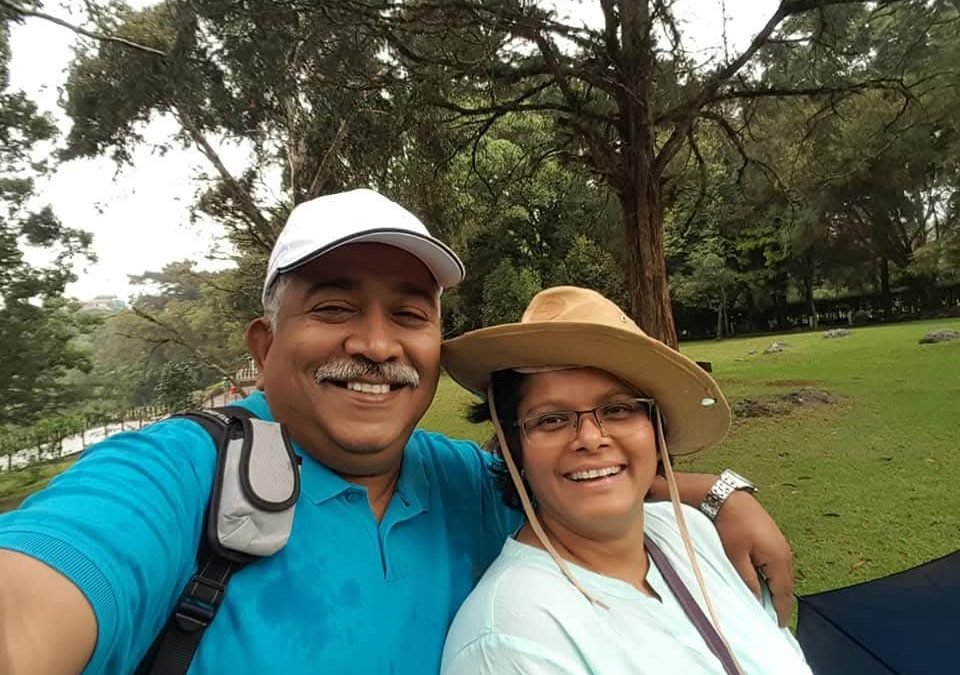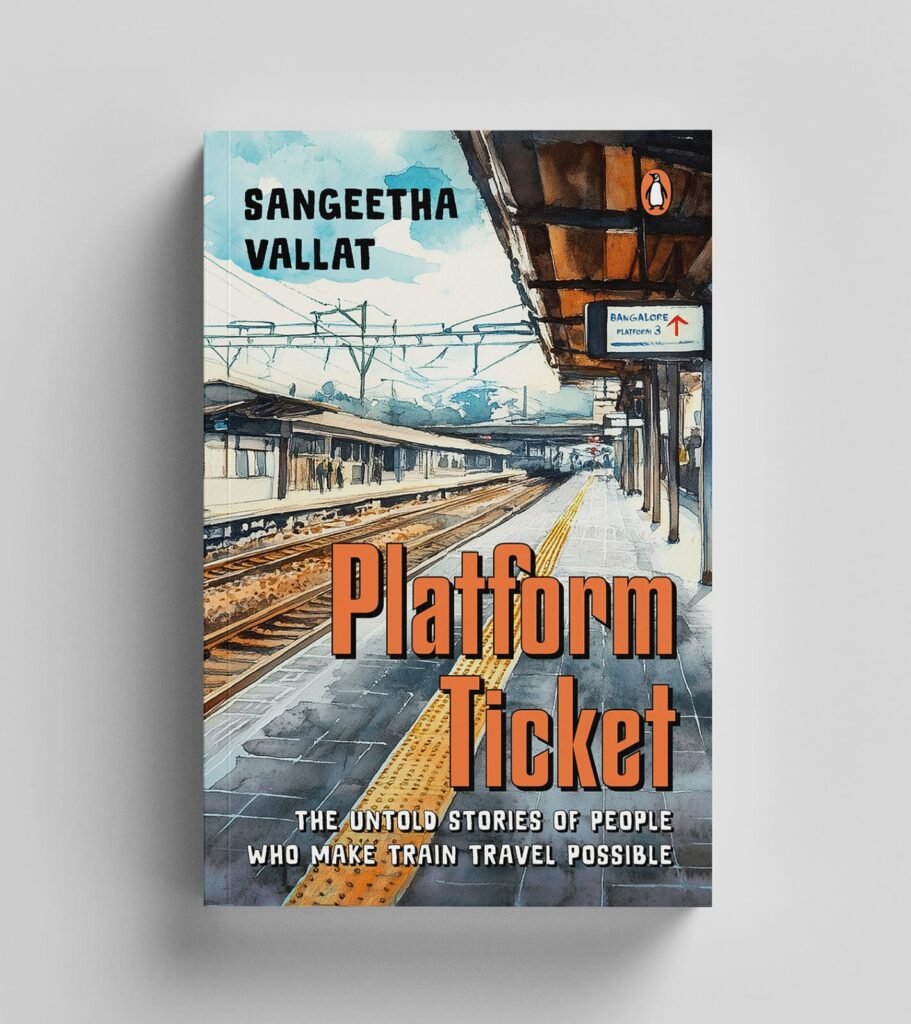
by Sangeetha Vallat | Jul 9, 2025 | Fiction Bites, Short Stories
When BTB (Beyond The Box) Chronicles came up with a prompt in 2021, on Unconventional Friendships, I wrote this, based on my friends in Dubai. This story was featured in their Edition 7 in Aug 2021.
MUM’S THE WORD.
Shailaja hung on the door handle, tugged it twice before sprinting into the foyer. As the elevator clipped to her floor, she gazed through the mashrabiya. An ever-enthralling view – the tallest building in the world, a monument of steel and concrete towered imperially with its head in the clouds. The lift doors opened with a ding. Her thoughts hovered over her friends, who would have assembled already.
And she knew that they would not open their mouths until she reached.
Shailaja, Benaifer, Mehroon, and Tahira met a few months ago at the playground. While their kids were swinging and sliding, the women smiled and nodded at each other.
Shailaja linked her palms in Namaste and spoke in English, “Hello. I am Shailaja from India.”
Mehroon’s burka flapped as she clucked, “Ah, I from India. English no. Malayalam.”
Shailaja, a Malayalee from Mumbai, not very conversant in her mother tongue, managed to string words together. She assured Mehroon that conversation was possible without English.
Benaifer and Tahira mumbled a flaccid hello. They furrowed their brows at the two women chattering in a strange nasal twang.
Benaifer, from Karachi, chirped in Urdu, and Tahira, from Cairo, spouted only Arabic. Shailaja managed to converse in Hindi with Benaifer, and her love for acting, which she had developed since school, aided her in enacting the conversation with Tahira.
When Mehroon drawled a sentence in Malayalam, Shailaja decoded it into Hindi, which Benaifer grasped. Getting through to Tahira posed a challenge. She scratched her mauve hijab, staring at her three friends gesticulating in a frenzy. After a few unsuccessful attempts, they reached a mutual agreement. Shailaja would pantomime, and the others would not interfere.
Every evening, the foursome convened at the playground. It then slowly branched out into visiting homes. They scheduled their recipe swapping session for noon on Wednesdays. Today, the meeting was held at Benaifer’s house, where she prepared a Pashtun Chapli Kebab while the ladies took notes.
Shailaja hoped the twins stayed asleep. Their exhausted nanny enjoyed the diversion of the ‘funny women’ as she had christened them. The twins were the latest addition to Benaifer’s swelling breed. Benaifer’s salwar had flaps stitched into them, for her breasts perpetually had a baby dangling from them.
Last month, everyone relished Shailaja’s Mumbai Pav Bhaji and Mehroon’s Malabar Pathiri and Chicken Curry.
The class at Tahira’s turned out to be an adventure. Deciphering the ingredients, such as ‘mulukhiyyah’, by looking, touching, biting, or googling, was an ordeal. Halfway through the process, Tahira put the ladle down, pushed the ladies onto the couch of her cramped studio apartment, and switched on the television, where they watched a drama in Arabic without subtitles. Tahira wrapped up the dish. The soup and the vine leaves were delicious.
So, without Shailaja, not a tongue will move other than to greet – Salaam Alaikum and Walaikkum Assalam. She needed to be there at Benaifer’s for the mutton to cook.
Can you imagine three women sitting silently?
An Oxymoron indeed!
***
Glossary
Mashrabiya – Lattice work.
Burka – An outer garment worn by Muslim women.
Hijab – The cloth covering the head/hair by Muslim women.
Pashtun Chapli Kebab – A lamb dish
Mumbai Pav Bhaji – Bread and Vegetable Curry.
Malabar Pathiri – A type of bread/roti.
Mullukhiyah – Egyptian Spinach.
Salaam Alaikum & Walekkum Assalam – Greetings in Arabic.
Picture Courtesy- Unsplash – Pricilla Du Preez

by Sangeetha Vallat | Jul 9, 2025 | Fiction Bites, Short Stories
I wrote this in July 2022 in response to a prompt on The Story Cabinet app and won a cash prize.
A CARDINAL SIN
Parvati sucked her breath and grabbed the doorknob, praying that it would not creak. Twisting it open, she peeped into her parents’ bedroom. The waxing crescent spilled pale light, contouring the supine snoring figures. She closed the door and slinked out of the house with a bag slung on her shoulder.
A faint wind moaned through the trees, and echoes of a howling dog rent the air. Parvati wrapped a shawl tightly around her shoulders and hastened to the usual haunt of their clandestine meetings.
She waited, wringing her hands, and listening to the chatter of cicadas accompanied by a frog’s plaintive melody. The grey clouds fleeted over the moon, cloaking the woods in gloom. Parvati slumped on a rock, peeling a cuticle from her index finger, and watched the fluid smirching her nails. Moisture clung to her eyelids.
In the northern corner of the village, Ilyas pedalled his bicycle furiously, berating himself for the delayed delivery of meat. He required the extra cash to begin a new life with his angel. The strap of his Bata slipper snagged to the cycle pedal and hung out on a limb for its dear life. Ilyas flung both his slippers without pausing his momentum.
Just then, a covey of men huddling on the skirts of the forest pounced onto the path and halted Ilyas. He clutched the brakes. It splintered, the cycle skidded, and Ilyas catapulted to the forest floor. The brambles drew blood, scouring his skin.
“You didn’t find any girls in your community to elope? Misleading our young ones with vacant promises!” The gang leader pulled Ilyas from the ground.
“Did you think we were spineless fellows?”
Ilyas flapped his eyelids. His muted protests fell on deaf ears. The men had passed the verdict without hearing the defendant’s plea.
Parvati’s cousin, to be precise, her fiancé since birth, lobbed the first punch. Blood squirted from the broken nose, and a wail erupted from Ilyas. The cruor mottled his white shirt. Ilyas coiled into a ball, shrinking as a volley of blows and kicks plagued him.
“Hand me the can. This will teach these scoundrels a lesson!” Yelled the stout priest.
“Do we need to do that?” Pleaded the schoolmaster.
“This pig asked for it. Move over, master.”
The priest tipped the can of kerosene over the doomed lover while the cousin peeled the wad of money from Ilyas’s wet pocket. Then, cramming it in his shirt, he lit a cigarette and flicked the match on his rival.
Jubilant over a job well done, the self-proclaimed custodians of sanctity dissolved into the darkness.
When the birds resting on treetops began to stir, Parvati heaved a sigh. The sun began to spread its tentacles, splotching the sky in orange and pink. Acrid fumes crept from the farthest side of the woods.
Carved with grief, Parvati trudged back home, lacerating her mind for reasons. Unable to swallow that those declarations of eternal love were empty promises.
Picture Courtesy – Unsplash – Alexandre Boucey

by Sangeetha Vallat | Jul 9, 2025 | Fiction Bites, Short Stories
Fathers and daughters share a special bond. In 2021, when an anthology was seeking short fiction for the ‘Grieving and Healing’ anthology, I wrote this, remembering my Achan, whom I miss. Everyday. He pampered me and never raised his voice. My friends, who once teased his crazy love for me, now reach out to me, saying that they are imitating my father; they have daughters whom they pamper and adore.
SOME THINGS NEVER CHANGE.
I see my mother talking to a lady, and I walk across the hall to join the conversation. Children circle the table nearby where a Monopoly board game is in progress. A clamour breaks out, and someone rushes to manage the unruly brats.
While my mother discloses her special recipe, my mind and gaze wander towards the other guests—a motley bunch. Animated conversations whip around me.
A girl in pigtails runs to us. “Mamma, I want water.”
My mother’s recipe captivates her mamma, and the daughter’s plea falls on deaf ears.
I can see a jug of water at arm’s length of the girl, a tween who is capable of picking up the pitcher to drink. But she refuses to quench her thirst and stares at my gesticulating mother. I do not suggest that the girl pick up the water jug. I am wary of youngsters. She may scream, ‘mind your own business’.
I do just that.
The next instant, the girl’s father swoops in like a genie, “Baby, I will get you water.” He finds a glass, tips the jug, and offers it to his daughter. Then twirls his stubby finger on her stray curls and tucks them behind her ears.
Why can’t the girl pour herself a glass of water instead of expecting her parents to do it for her? And the father dashes from across the hall to do her bidding. I chew on my thoughts.
Uncannily, my mom reads my mind, and her lips curl up. Soon, I can see the thing staring at me. My father would have darted to my side to hand me a glass of water and smothered me with his attention, love, and adoration. I would have persisted like that girl in pigtails – Forever Daddy’s Little Princess.
The moisture in my eyes threatens to fall. I miss my Achan. A silent presence in my life, invariably supporting me against all odds.
My mother relentlessly complains that I take after my father. That none of her genetic material has seeped into me.
I am proud to be my father’s daughter.
A plethora of memories unspool – the ritual Achan followed, by waiting at the gate until I returned after work, and how Achan would stay by my bedside if I were unwell, how Achan gulped his resentment when I returned home late after the movie with friends, and the cigarettes Achan smoked when I went through labour. Especially the camaraderie Achan shared with my husband…
I see my husband on his knees listening to our daughter’s babble.
Some things never change.
Fathers and daughters – an incredible bond that never fades. My father lives on in all the fathers of daughters.
Picture Courtesy – Brittani Burns

by Sangeetha Vallat | Jul 9, 2025 | Fiction Bites, Short Stories
This story was published in the anthology collection ‘Existing Loudly Volume II’. The story combines my experiences of train travel with some everyday scenes at a railway platform, and a touch of fiction. You will find the actual version of this incident in my book Platform Ticket.
SILVER BRILLIANCE
The turbaned man, hunkered on the pavement opposite, was spreading his wares on a plastic sheet. He swished a yellow cloth like an angel waving her wand over the merchandise, forbidding the flecks of dust from listlessly settling on the heart-shaped keychains, multicoloured bead necklaces, or the trendy sunglasses. Asha watched him as she waited for the traffic lights to turn red, allowing her to cross over to the station. She envied him for the ease with which he conversed with his clients. His apparent contentment made her realise that happiness is self-achieved. A gaggle of young girls crowded around the preening vendor, elbowing each other for the knick-knacks.
Ah, the age of innocence. How blessed ignorance is! Asha thought as she passed the girls, still debating over the keychains. Asha bounded the twenty-eight steps leading to the platform, presuming them to symbolise one for every year of her life. The lights turned green, and the blare of the approaching train added to the chaos that engulfed her. She deftly dodged the peddlers who displayed their wares, hollering for business.
“Rs25 a dozen.” Screamed the fruit vendor.
“Fresh coriander and mint leaves! Amma buy a bunch, grind tasty chutney.” The old lady entreated the passers-by.
Beggars splayed their maimed bodies on the stairs, interspersing the vendors, and aspired to tingle the pedestrians’ altruistic behaviour by rattling their bowls.
“Ammmaaa… Saarr… God will shower his blessings on your family. Please drop some coins or currency notes.”
The urchins scratched their heads while nothing escaped the scrutiny of their eyes. They waited for the right opportunity.
A further stretch of 30 yards, Asha glided through the veritable bazaar of fragrances, absorbing strangers’ sweat and perfumes. Humanity failed to prevail as humans hurried unmindful of the hurt elbows or the stray hair that caught on to zippers of bags—each one rushing to outrun the others in the game of life. Asha then descended a few more steps, reached the platform to be swooped into the local train.
Heaving a sigh, she puckered her brows. The ladies compartment reeked of femininity. The glistening midriffs and the stained armpits nauseated her. Asha was pushed, poked, and jostled.
“Ouch! Are you blind? You broke my toe.” Yelled a bespectacled, stout woman.
“As if I intended to step on your toes. Why are you occupying so much space?” Barked a slender young girl.
“Oh! You have such a nasty mouth. I pity the guy who would marry you.”
“Do you have a son? Maybe I can marry him.”
The arguments escalated, and Asha steered clear of the loud-mouthed women and reached the back row. She smiled at the schoolgirl who would alight after a few stations. Rummaging in her bag, Asha picked and inserted the headphones. The melody, mixed with the trundling of the train, calmed her nerves. She closed her eyes and balanced her stance. In a while, the stench of the approaching bracken river broke her exaltation. The schoolgirl’s destination had arrived.
Asha rested her sore back and moaned in relief as she stuffed the headphones and glanced at the varied hues. Sarees, salwar, skirts, and jeans-clad women engaged in multifarious activity. A patter of numerous languages and accents spilled through as the women opened their tiffin boxes. The compartment stewed with diverse cuisines. Appetising aromas pervaded the cabin. From a corner wafted the deliciousness of succulent drumstick sambar and gingelly oil-drenched dosas, and on the other side, the pungency of garlic assailed the senses. Asha wrinkled her nostrils as someone relished dried fish curry. Tastes were approved, and women shared recipes.
Peddlers selling Roses and Jasmine thronged inside, and thankfully, the fragrance masked all the other odours. And soon after, almost every braid adorned a flower.
“Sister, buy a red rose. It will match your dress.” Marketed a dusky beauty.
Asha, though tempted to buy, restrained herself. She quickly estimated how many litres of milk a month could be purchased with the flower money these women splurged on without a care. She shook her head, and the girl’s eyes reflected empathy. The women engaged in discussions from menstruation to childbirth to episodes of quarrels with the mother-in-law, woes of the irresponsible teenagers, and despondency at drunk husbands. The countless conversations depicting the tedium of everyday existence dizzied Asha.
While the sea breeze played with her curls, Asha overheard the girl seated opposite on the phone.
“I couldn’t go to the reception. My parents were worried about how I would reach home so late. I am getting good marriage alliances, and they don’t want the neighbours to gossip or anything.”
The girl grinned at Asha and continued her rants, “I know I am still too young for marriage. It’s more to satisfy the wagging tongues of the many aunts in the family who are disgusted that my parents are letting me work instead of getting me married…. Hello, hello, can’t you hear me? Hello!”
She scratched behind her ears and said to no one in particular, “The line got cut. Poor signal.” An imperceptible smile crossed Asha’s lips, and ripples formed in the folds of her mind. A vision of her condoning aunts who practised speaking in overtones of reproval loomed largely. Last week, Asha had asserted her views and announced in clear terms that she would get married after her sisters completed their education. Being the eldest and the breadwinner in a family of women, she was burdened with responsibilities. Her poor mother trembled when her aunts visited, throwing insinuations.
“Are you married?” The question from the girl on the phone startled Asha.
“No.”
“You seem to be much older than me, yet unmarried. Why do my parents nag me!?”
Asha laughed, although annoyed, “All parents are in a hurry to marry off their daughters. It would be helpful if you could discuss your ambitions with them. They have your best interests at heart.”
Fortunately, the phone buzzed, and she left Asha to her musings.
Asha’s was the penultimate station, and the train was almost empty by then. She glanced around to check if the compartment was deserted. If it were, she would get down and change to the general compartment when the train halted. Asha preferred travelling the short distance to her destination in the general compartment to being alone in the ladies.
Her eyes were greeted by a passenger seated at the farthest corner. Asha shuddered and wasted a split second on the decision while the train dragged ahead. Clutching the bag to her chest, Asha gazed at the fleeting scenery while a sidelong glance registered the tall figure sauntering toward her.
“It is scary to sit alone, isn’t it?” Asked the hoarse voice, perched on the seat opposite, as she adjusted the parrot green sari that draped her body like a second skin.
Asha feigned nonchalance and surreptitiously observed the turmeric-stained face and the big red dot on the forehead.
“If you hadn’t been here, I would have shifted to the other compartment,” Continued the stranger, gesticulating like a dancer and stroking a square jaw.
Although the jingling bangles were mesmerising, Asha picked up her mobile and dialled a friend.
“This section hampers the mobile signal; you cannot make a call.” The familiarity of the stranger irked Asha.
When the train halted midway for an oncoming train, Asha’s countenance turned ashen.
“Don’t worry. The train will move soon. Drink water. You look pale.”
Then the stranger, with outstretched hands, touched Asha’s head, cracked her knuckles on her vermilion forehead, and then sashayed to the exit.
Asha whizzed to the foot over-bridge before the train screeched to a halt.
Asha’s stride faltered, and her eyes widened as she reached the top of the bridge. A day like any other, the regular train, the same platform, yet suddenly nothing was the same. A homeless man seated on the walkway had his hand underneath the tattered cloth covering his lower body. The hand jerked furiously. His eyes met Asha’s; he removed the cloth and flashed at her. His lecherous eyes stripped Asha. Not a squeak ensued from her parched throat. She couldn’t swallow her spit.
“Come, honey, come closer. I bet you haven’t seen anything like this before.” He said, slithering a pale tongue over his lips.
Her stomach was in knots, and her legs felt like jelly. Asha’s hands flailed in the air and clasped the railing. Bile soared inside Asha when a gust of wind delivered the fecund stench from the bedraggled man. She sensed footsteps behind her. The stranger from the train had followed her to the top of the stairs. The repulsion gave way to relief in Asha’s eyes. The stranger took charge of the situation and flung slippers at the homeless man.
“You swine! You filthy swine!”
The man tried to push but was no match for the heavy-set woman. Her single kick left him sprawled sideways.
Asha’s eyes flitted, and she cowered behind the angel.
The saviour screamed, “Help!” The patrolling Railway policeman and a few vendors from the platform rushed towards them, and the policeman apprehended the flasher. The clanging in Asha’s head grew louder. She baulked for a few moments, then followed her saviour to the police station at the platform’s end.
The women waited to register their complaint. Asha offered water to her new friend, Shilpa.
“Thank you. If you hadn’t come up the stairs….”
“Don’t think about that now. Relax.”
“Hmmm. I hope you are not in a hurry. Where do you work?”
“I don’t have a steady job now. Earlier, I worked in a software company. In our family, I was the only one who graduated and found a job. My parents were proud of me until I opted to live according to my terms.”
“Hmmm.” Asha inadvertently adjusted her dress and continued, “My aunts are pressurising me to get married. My working hours are not acceptable to the neighbourhood women. To shut them up, I need to settle down. We are expected to sacrifice our individuality for societal pressures.” Asha wondered at the ease with which she could open up to a stranger.
“If we opt to fight, we are ostracised.”
“Hmmm.”
“I see you every day. You work at the auditor’s firm, isn’t it?”
“Oh, yes. I have never seen you before today.”
“People do not like to see us. They turn their heads. Even you did not want to talk earlier.” A mischievous smile played on the betel-chewed lips.
“I am very sorry. I am ashamed of my behaviour. You come home; I will share my address. Meet my mother and sisters. They would be happy to meet you.”
Shilpa’s eyes crinkled, “It’s OK. I am used to such behaviour. Your family will not be happy to see me. The neighbourhood aunties would be busy creating stories.”
Asha lowered her eyes.
Soon, they were ushered to meet the officer in charge.
“What is your complaint?”
“Sir, that man misbehaved with her.”
“You stand aside.” The policeman snarled. Turning towards Asha, he asked, “Madam, you tell me, what happened?”
“That man was doing dirty things. He called me closer. Arrest him and put him in jail. Dirty scoundrel!”
“Relax, madam. Did you approach him anytime? Many passengers use the bridge. Why did he choose you?”
Asha crimsoned. “Why would I approach him? I don’t know anything. You beat and make him confess.”
“Madam, you need not teach us how to work. We know. Write your complaint. We will call you as a witness at any time. Will you come?”
Suddenly, the men sprang from their seats and saluted the officer who entered the office. The inquiry pattern shifted like a kaleidoscope, and Asha and Shilpa, who had been squirming just a few seconds ago, easily explained their issue.
The women completed the formalities at the railway police station and stepped out, concealing a sigh.
They bid farewell. Asha hesitated, wondering if she should share phone numbers. Then she checked her watch and rushed away, worrying about the pay cut she would incur for her late arrival.
They parted their ways as strangers again.
Asha scrambled out of the Railway station, and her eyes scanned the dimly lit corridor of the subway. A girl in a school uniform walked ahead, hugging her school bag, and her steps faltered when a group of boys approached, hooting and whistling. Asha paced forward, glaring at the boys. The young girl matched Asha’s strides.
Asha’s lips curled upwards as they emerged into the warmth of the silver brilliance.

by Sangeetha Vallat | Jul 8, 2025 | Passport Pages
In September 2018, I wrote this blog post. I went through a whole gamut of emotions in the preceding months – excitement about travel plans, crashing dreams, and a ray of hope. Posting it in the Passport Pages, as this is a prelude to my upcoming travelogue.
Bucket Lists and Bitter Vegemite.
Everybody has a bucket list. Things to do, places to see, experiences to collect, all before, well, kicking the bucket. Don’t you have one?
If not, here’s a little nudge: grab a diary or your phone and jot down everything that comes to mind. You don’t need to be past 60 or face a health scare to make that list. In fact, the earlier you start, the better. Begin in your teens, add to it over time, and strike things off as you go. That way, you’re not racing against time, you’re travelling with it.
My own list? It’s long. Ambitious. Maybe even unrealistic. But that’s the fun part, I might never actually empty my bucket. And I’m okay with that.
Sujith and I always loved to travel. So, naturally, I asked him once to write down his travel wishlist. Where mine had 25 destinations, his had… just three. “Whattt? Only three?” I asked, surprised. Sujith smiled and said, “I’ll refill the bucket as I go.” Smart guy. True to form, he ticked off all three places. Me? I was thrilled just to strike off one that we had in common.
At the very top of my list was Australia. Watching Travel & Living, getting hooked on MasterChef Australia, and devouring Bill Bryson’s Down Under made Australia my ultimate dream. I was over the moon when we finally planned a vacation there: Cairns and the Great Barrier Reef (I even took swimming lessons for that!), the Gold Coast, Sydney, Melbourne—the whole package.
Hotels booked, flights reserved, and an itinerary prepared (complete with historical notes for each location, thank you very much), with countless hours spent on YouTube scouring details, everything was perfect.
And then, the visas were rejected.
Since we had to provide flight and hotel bookings with the application, we had gone all-in. We were supposed to travel with a cousin and their family from India, and their visas were approved. Sujith, knowing how crushed I’d be, kept the rejection to himself for a bit. When he finally told me, it felt like the air had been sucked out of me.
It wasn’t just the loss of money. It was the loss of a dream. I stopped watching travel shows. I avoided anything that reminded me of vacations. Can you believe I even bought a jar of Vegemite to get “used to the taste” before the trip? It’s still sitting at the back of my kitchen shelf like a bitter souvenir of what never was.
Then came the Eid holidays.
I didn’t even want to suggest a trip. But Sujith knew I needed a break. We decided to explore last-minute options and called a few travel agencies- places where Indians could get a visa on arrival. They all said the same thing: “Fully booked.” Georgia, Baku, and Kenya were the top picks. But no luck. Until a friend gave us his cousin’s contact at Akbar Travels.
We called, without much hope. They said they’d get back to us. We shrugged and decided to chill at home, binge some web series, and let the holiday pass us by.
Then, the unexpected happened.
Sujith called from work, telling me to get ready, we had two seats on the Kenya trip. A last-minute cancellation had opened up. We rushed to the agency, paid immediately, and walked out with our itinerary in hand. It felt surreal. We didn’t tell many people; afraid the jinx might return. Just my mom and Sujith’s brother knew.
But that anxiety still hovered.
Our flight from Dubai to Jomo Kenyatta Airport in Nairobi was delayed by 2.5 hours. I was a bundle of nerves. The Kenya Airways Dreamliner wasn’t the most comfortable experience, warm cabin, and even after complaining, the temperature didn’t improve.
Still, I kept my fingers crossed, heart pounding, until I had that visa stamp on my passport.
Finally, at immigration, I offered my brightest smile to the friendly officer and said, “Ahsante Sana” with all the Swahili charm I could muster.
Dreams may crash. But sometimes, they find new wings.






